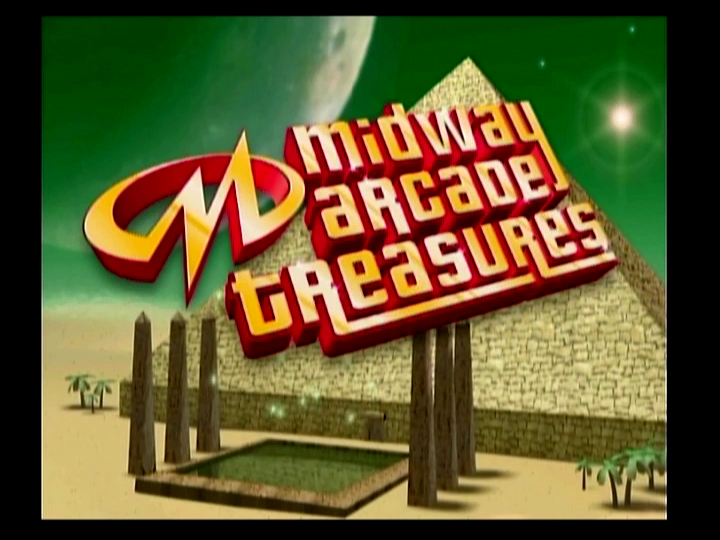"Atari". Much like how many years later the brand names "Nintendo", "Game Boy" and "PlayStation" would be synonymous with the phrase "video games", "Atari" to many of those growing up in the 70's and early 80's would translate to simply: "video games". After essentially creating the video arcade industry with hits like Pong and Asteroids, Atari would go on to invade the American home with the Atari Video Computer System (Atari 2600).
With the home and arcade markets under it's stranglehold, Atari seemed like it was the King of the World. Other hit games like Centipede and Tempest would follow. In the words of Bubsy the Bobcat "What could possibly go wrong?" Well, the Video Game Crash 1983 happened, that's uh... that's what went wrong. Due to overproducing too many consoles, too many cartridges, and releasing some truly bad games, E.T. for 2600 is the designated whipping boy, Atari was both a major participant in the Crash and a victim of it. In the fallout, Warner Communications -- Atari's parent company -- lost hundreds of millions of dollars. So a year later in 1984, Warner Communications sold off Atari Consumer, the home console division, and relaunched Atari's arcade division. There were now two different Ataris that were not allowed to interact with each other: Atari Corp,, a developer and publisher of personal computer games and home console games, and Atari Games Corp, a developer and publisher of arcade games and the successor to the original company.
Even though it had a similar name and logo, from a legal standpoint, Atari Games Corp was an entirely new entity. Games made by Atari Games Corp always had to use the full name "Atari Games", and were not allowed to publish games for the home market with the Atari name. In 1985, Namco became the parent company of Atari Games and a year after THAT sale, Atari Games' employees became the majority shareholders. Being locked out of the home market, Atari Games made a brand name to circumvent this: Tengen. Through Tengen, Atari Games would release 3 official games on NES and dozens of unlicensed ones. This disregard for Nintendo's licensing policies landed them in some hot water with The Big N. Nintendo's lawyers and the courts were not kind to Atari Games.
Atari Games fared much better in the arcades. They retained a sizeable chunk of the old Atari Coin arcade gamemakers, Such as Ed Logg, but were legally barred from continuing the familiar properties. For instance, they were not allowed to make another Asterioids game, so instead they made an extremely similar game called Blasteriods. That would be like, if somehow Miyamoto got exiled from Nintendo and him and his crew started a new development team independent of Nintendo called Nintendo Games and made a game similar to Super Mario Bros. titled Super Blario Bros. starring Blario and his brother Bewligi! Eh, maybe that analogy sounded better in my head. By the way, that wasn't a slight against Blasteriods, it's a pretty fun game.
Being locked out of the old franchises allowed Atari Games to craft their own identity as an arcade maker. They were pioneers in a lot of ways. One of the earlier releases from the new company, Marble Madness, was a proving ground for new hardware the Atari System 1. The Atari System 1 was played with a trackball, and is considered the first video game to feature stereo sound. Hard Drivin', a driving simulator they made featured polygon graphics way back in 1989! They tackled many different genres and, I felt, from the 80's up until the early 90's, they had many more homeruns than they did strikeouts. The revolutionary skateboarding game 720 Degrees, tank battle game Vindicators, car combat game Roadblasters, dungeon crawler Guantlet, the trippy puzzle action game Klax, Xybots, an arcade third-person shooter, and Paperboy, a game the defies classification!, to name a few. Less impressively, Atari Games made Pit-Fighter, an infamously bad fighting game in 1990. With it's digitized sprites, Pit Fighter looks an awful lot like a Mortal Kombat knockoff. So how funny is it that Pit-Fighter actually predates Mortal Kombat?
Titles by Atari Games released in the 80's had an instantly recognizable style. They all had similar fonts, screen transition effects, used the same sound synthesis hardware and even featured voices. Highly garbled voices made with a subtractive synthesizer, but voices nonetheless. You put a coin in and if that iconic -- BONG! -- sound effect came out, you'd know you were playing an Atari Games game. I'm gonna be honest, it's strange to say Atari Games game.
Time Warner (Nowadays known as WarnerMedia) absorbed Atari Games in 1993 and dismantled the Tengen brand. The major product of note that came out under the Time Warner ownership was Primal Rage, a game that looked and played like Mortal Kombat but with prehistoric creatures.
In 1996, Atari Games Corp was sold off to WMS Industries, who lumped them together with the Williams/Bally/Midway consortium. Which means that after starting the digitized-sprite fighting game trend, having been ripped off by Midway and then ripping off Midway themselves, Atari Games was now part of the Midway family. Under Midway, Atari Games Corp provided developmental support for Mortal Kombat 3 and put out other neat arcade games such as the San Francisco Rush series, California Speed, War: Final Assault and Area 51: Site #4.
In 1999, Midway changed the name of Atari Games Corp to "Midway Games West". I guess to prevent brand confusion? It only took the companies 15 years to realize that having two Ataris running around the place was confusing? Ooookay. Even with big games, like Hydro Thunder, being made under this brand, the new name seemed to be the writing on the wall. After the name change, their output would diminish considerably. Their final game as Midway Games West would be Dr. Muto, released in 2002 for sixth-generation home consoles. That was less of swan song and more of a dirge.
Games by Atari Games Corp have since been collected in Arcade's Greatest Hits: The Atari Collection 1 and 2, Midway Arcade Treasures 1, 2 and 3, Midway Arcade Origins and also as part of the Midway Games dimension in Lego Dimensions. Midway themselves would later be absorbed into Warner Bros Interactive, making everything come full circle. These days, Warner Bros. uses Midway as a catch-all brandname for all of the classic arcade games they own that were originally made by Bally/Midway, Midway Games, Williams, Leland Corp and Atari Games Corp. This branding is convenient for the sake of shorthand, but also a tad misleading. I feel it's important to remember that some of the "Midway Classics" were really products of the original Atari's last remnants.

























